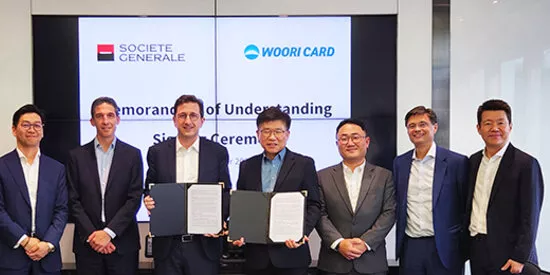
Facilitating a lower-emissions economy in Southeast Asia
The shift to cleaner technologies is an opportunity for countries and companies in Southeast Asia to work together to deliver a positive impact for the entire region.
By Raphael Cheminat, Group Country Head of Singapore and Head of Southeast Asia, Societe Generale
Southeast Asia is ratcheting up its climate ambitions, with countries from Indonesia to Vietnam signing up to new commitments to decarbonise their economies. Reducing the region’s dependence on fossil fuels and natural resources will be the biggest challenge of our lifetimes, but it also presents an opportunity for those that are able to show leadership.
Governments in Southeast Asia are taking action – as the recent pledges to curb the use of coal in Vietnam, the Philippines and Indonesia, and Thailand’s net zero commitment have shown. Meeting these ambitions will require enormous investment: an estimated USD24 trillion will be invested in Asia Pacific across all energy sectors by 2040 – approximately 40% of all global investment according to the Asia Investor Group on Climate Change.1 Financial institutions, policymakers and investors must ensure these funds are directed into investments that support a sustainable economy.
Creating the right environment for low-carbon infrastructure to flourish will require public and private institutions to work together on the development of carbon pricing mechanisms, carbon capture technology and regulatory standards.
We believe Singapore is well placed to play a critical role in this transition, by using its financial market infrastructure to catalyse investment into lower-carbon technologies, create a regional carbon trading hub and set the standard for other countries to follow.
Creating incentives
After much wrangling and negotiation, detailed technical specifications for a global carbon-pricing and offsetting mechanism were finalised at the COP26 summit held in Glasgow. Putting in place an international system for this complex activity in Asia will be difficult, but Singapore’s robust legislative, commodity trading and financial services infrastructure puts it in a strong position to lead the development.
Singapore outlined its ambitions to become a carbon trading and services hub last year with the publication of the Singapore Green Plan 2030, as part of a broader push to seize sustainability growth opportunities. The Climate Impact X (CIX) joint venture, backed by Singapore’s leading financial institutions, is a step towards the development of a trusted framework for a carbon market, which will help to catalyse a regional market for carbon offsets.
A fully functioning carbon credit market, where carbon-intensive companies pay lower emitters for the allowances they need to meet emissions targets, will increase costs for high emitters, incentivising them to seek greener alternatives. It creates a starting point for hard-to-abate sectors, where the pathway to carbon neutrality will be a complex process over many years.
Southeast Asia will also need to explore Carbon Capture, Utilisation and Storage (CCUS) technology, which promises to help by removing emissions at source and locking them away permanently.
This is a relatively new and costly technology, but momentum is increasing. In June last year, regional governments formed the Asia CCUS Network to enable the region to cooperate on developing the policies and regulations to develop CCUS.2 Singapore’s Energy Market Authority is a founding signatory. Some 30 new commercial facilities are in the planning stages, and in 2020 governments and industry committed more than USD4.5 billion to CCUS projects.3
Confidence and cooperation
Attracting investment into low-emissions technologies will be essential if Southeast Asia is to make the shift to net zero. Increasing investors’ trust and reducing the possibility of ‘greenwashing’ is therefore a critical piece of the puzzle.
Well-designed green taxonomies address ESG investors’ need for greater certainty about the sustainability of their investments. As we have seen in Europe, standardised criteria improve trust in the market, bring confidence and assurance to investors, ultimately enabling more effective sustainable finance flows.
That’s why Societe Generale is supporting efforts by the Monetary Authority of Singapore (MAS) to develop a local green taxonomy through the establishment of the Green Finance Industry Taskforce. Clear and consistent standards like these will help Southeast Asia attract the capital it needs to transition away from fossil fuels.
In the private sector, collective action through alliances such as the Net-Zero Banking Alliance (NZBA) – where Societe Generale is a founding member – will be instrumental in catalysing this redirection of capital.
Our belief in cooperation is part of our long-standing commitment to support the transition by working with clients and embedding ESG in our own corporate purpose.4 As far back as 2001, the bank was a founding member of the United Nations Environment Programme Finance Initiative (UNEP-FI) Positive Impact Initiative, which aims to mobilise financing towards the Sustainable Development Goals. This collaborative approach is especially important in Asia Pacific, where public-private partnerships are an essential component of reducing carbon emissions. Between 2015 and 2021, we supported our clients on more than 40 energy transition projects across the region, including several innovative renewable energy projects such as Indonesia’s first floating solar installation and a portfolio of wind farms in Vietnam.5
Together, we have the resources to make a positive impact and become a leader in climate finance – with banks, investors, clients and regulators working together to translate words into action.
1 https://www.aigcc.net/wp-content/uploads/2021/03/March-2021_-Asias-Net-Zero-Energy-Investment-Potential-English.pdf
2 https://www.iea.org/reports/carbon-capture-utilisation-and-storage-the-opportunity-in-southeast-asia/introduction
3 https://www.iea.org/commentaries/is-carbon-capture-too-expensive
4 https://www.societegenerale.com/en/news/press-release/societe-generale-joins-net-zero-banking-alliance
5 https://www.societegenerale.asia/en/newsroom/success-stories/success-stories-details/news/ripple-effect-floating-solar-project-sets-template-for-southeast-asia/





